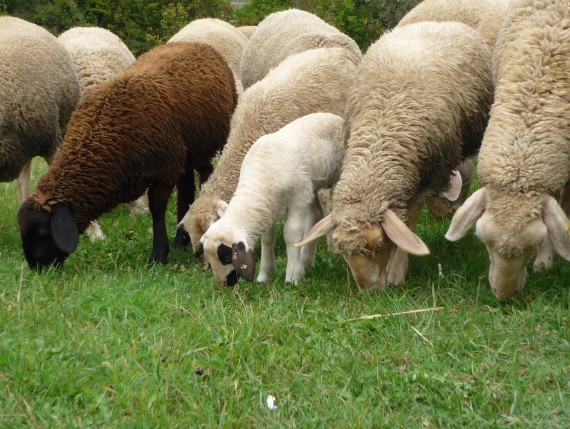
[This post is part of a series called Rooted. Find the other posts here]
By Steve Stuckey
In this season of reflecting upon the incarnation, it strikes me that the response of the shepherds to the coming of the messiah might be helpful to apostle, prophet, and evangelist types. Some of Scriptures greatest pioneers of the faith–Abraham, Isaac, Jacob, Joseph, Moses, David, and Amos–all got their start as shepherds.
Scripture Passage:
And there were shepherds living out in the fields nearby, keeping watch over their flocks at night. An angel of the Lord appeared to them, and the glory of the Lord shone round them and they were terrified. But the angel said to them, “Do not be afraid. I bring you good news of great joy that will be for all the people. Today in the town of David a Savior has been born to you; he is Christ the Lord. This will be a sign for you: you will find a baby wrapped in cloths and lying in a manger. Suddenly a great company of the heavenly host appeared with the angel, praising God and saying, “Glory to God in the highest, and on earth peace to men on whom his favor rests.” When the angels had left them and gone into heaven, the shepherds said to one another, “Let us go to Bethlehem and see this thing that has happened, which the Lord has told us about.” Luke 2:8-15
Reflection:
If there was an occupational pecking order in the first century, kings and religious rulers would be at the top and shepherds would be near the bottom. That wasn’t always the case. There was a time when the majority of the population was nomadic. Sheep and goats were a source of wealth and everyone had a hand in the animal husbandry business. But when cities grew, so did the occupational options. Less lonely and dangerous jobs such as merchant, potter, or craftsman grew in priority, while the role of shepherd was assigned to those on the fringe of society. The culture depended upon their labor for food and clothing, but there was a silent caveat. Keep the flea bitten animals out of sight and don’t mingle with the town folk. Not much has changed in 2000 years.
Caring for sheep is hard, lonely work. Shepherds must live outdoors year round exposed to the heat of summer and the cold rains of winter. They lived in tents, bathed infrequently, and didn’t smell good. They spent mind numbing hours watching animals graze. Night time was particularly precarious because domesticated sheep are pathetically defenseless. They are small, slow, and not very clever. When a hungry lion or bear was looking for an easy meal, mutton was their first menu choice; which is where the shepherd came in. At the first sign of trouble, the shepherd would put himself between his fuzzy flock and the marauding predator. Using rocks, pointed sticks, or his own fists, the shepherd would fight the enemy until it ran away or one of them died. A good shepherd must be willing to lead his lambs to green pastures, search out still waters, and put his life on the line nightly if necessary. The job required both courage and compassion if one was to be successful.
When the Great Shepherd of our Souls entered our world 2000 years ago, it makes sense that he would chose to reveal himself first to shepherds on the Bethlehem hillside. They would be inclined to understand why he came. They would recognize a movement of courage and compassion. They could welcome one of their own who came to suffer for his flock as they had for theirs. They would not be put off by a king who was born in a barn. From their vantage point, a barn was a step up. And they would know that the world is filled with enemies, those proud lions of religion and commerce looking for an easy meal but blind to innocent beauty. So when the angelic hosts announced the birth of Jesus, the shepherds received the word gladly and eagerly sought out the child. May we do the same.

Sign up to receive our blog posts via e-mail and get instant access to our APE Library with videos, seminars, leaders notes, and more.

